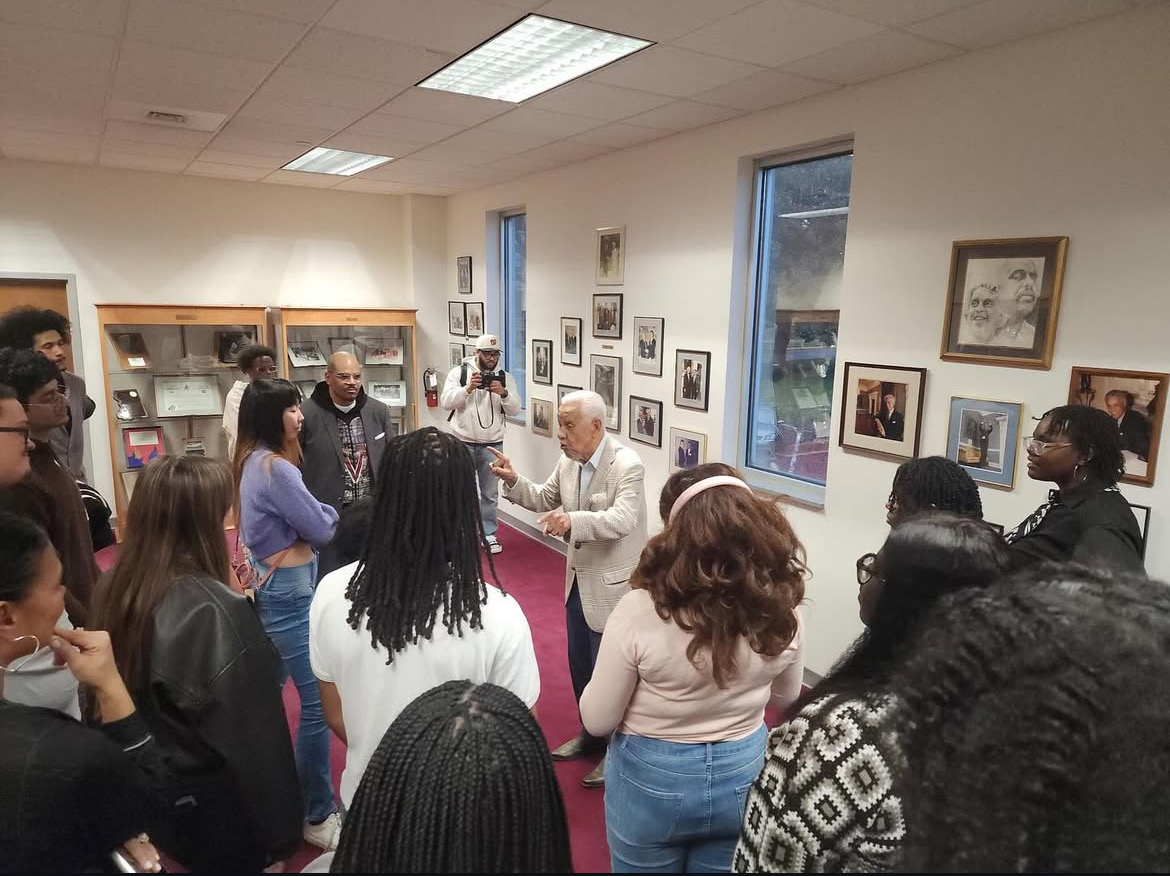Since Donald Trump took office in January, more than 340 international students, faculty and researchers from universities and colleges around the country have had their visas revoked according to a meta-analysis of court filings and confirmed statements compiled by CNN. This statistic marks a massive rise in visa revocations — a trend that presents a looming threat to international students at Carleton.
This unprecedented action shows a massive expansion of the criteria for cancellation under direction from Secretary of State Marco Rubio and Secretary of Homeland Security Kristi Noem. According to the Presidents’ Alliance on Higher Education, an organization representing more than 570 American private colleges and universities, many of the revocations were levied without any explanation, and many of the reasonings that were provided — such as involvement in political protest and years-old minor legal infractions — show usages of “deeply disturbing immigration enforcement actions” that they believe violate the Constitution.
Director of International Student Life (ISL) and Intercultural & International Life Liz Cody said that she understands the anxiety many Carleton students feel as they read news about international students who are surprised to lose their visa or even get detained and deported. She said that stories of students deported reportedly because of political social media posts or past legal encounters such as a DWI are frightening to international Carleton students.
“You’re going to resonate with [the news stories] because that could be you,” said Cody. “[International students] really are here to learn in the same way that everyone else is, and we have some of the smartest students in the world at Carleton. [Carleton international students’] goals are to get a really great education, learn new skills and also learn a completely new perspective … so it’s scary to have something so great in your life, like getting an education at Carleton, and then having to worry that something could change,” she said.
Several international students in Minnesota have had their visas revoked, and some have been detained by the U.S. Immigration and Customs Enforcement (ICE), but thus far, only students from Minnesota public institutions have been targeted: students from the University of Minnesota, Minnesota State University at Mankato, St. Cloud State University, South Central College, Metropolitan State University and Ridgewater College. At this time, no students at Carleton have been targeted, but the threat of revocation has led to students altering their behavior out of an abundance of caution.
“I think you’ve seen a lot of us go quiet…. There are very legitimate fears of visa revocation of action by the State Department or action by ICE potentially,” an anonymous student (hereafter Student A) said. “I think there’s just the general sense of ‘don’t say anything at this moment.’”
Student A explained further that retaining a student visa can be incredibly high stakes for some students. “There’s a portion of international students who are trying to get away from dictatorships, who are trying to get away from very economically deprived areas and see that whole ‘land of opportunity in America’ thing,” they said.
For many international students, the pressure to self-censor challenges the presented ideals of the U.S. A second anonymous international student (hereafter Student B) expressed frustration with this dissonance, pointing specifically to the conflict between the values of freedom of expression and freedom of protest and the recent experience of international students in the U.S.
“Everyone talks about ‘America: the land of free speech,’ and then you come here and hear ‘be careful what you say,’ ‘you might get deported,’” Student B said. “If you want to take a stance on something, but you’re not allowed to because you’re scared, that’s kind of the opposite of what America portrays itself as.”
An ISL email provided by an anonymous international student echoes this new culture of self-censorship. Between information about taxes and peer leader hiring, Cody’s weekly ISL newsletter reminded students that “CBP Officers can ask to look through your phone when traveling in the U.S or internationally. Be sure that you check through your social media and are thoughtful about posting or reposting any political views. Be careful in general of what you have in your phone.”
Beyond general conduct advice, Carleton also has existing structures to support concerned students.
“Carleton, on the immigration task force website, has indicated that they would provide initial legal consultation for any student or person in the Carleton community who is facing any sort of legal action,” Cody said. “Our office is going to do what we can to support international students, and I think they know if they have questions, they should always come and check in with us.”
The website, titled “Immigration Response Guidance,” includes guidance for Carleton students, faculty and staff about “federal agencies such as ICE and their potential interactions with the Carleton community.” It advises students who see ICE on campus to contact campus security. The site is password protected, with visitors being required to provide a Carleton login to access the information. The site summarizes Carleton’s overall plan: “Carleton does not permit law enforcement agents, including ICE, to enter any private areas of the College, except when required by law. Carleton must honor valid judicial warrants, court orders, and subpoenas.”
Both the website and the email from ISL suggest that students, faculty or staff having problems with ICE should reach out to the college. With regard to travel bans, Cody’s email said, “You should comply with the requests of the CBP officer and can call Liz/Jason if you are stuck and need assistance.” The website says that Carleton would be able to provide free initial legal consultation if a community member were detained, they “cannot commit to covering the costs of legal representation” but would provide advice about legal representation and funding availability.
Historically, once international students were given student visas, they could generally depend on retaining residency for the allotted time period. Even in the case of visa revocation, international students have almost always retained their legal residency status, allowing students to finish out their courses in the U.S. This recent wave of revocations, however, has been done silently and included removal of legal residency status, leaving students at risk of detention and deportation.
Stories about the treatment of international students have spread quickly online. A surveillance video of an international student at Tufts University went particularly viral. In the video, she is quickly surrounded by several plain-clothed ICE agents who handcuff her and force her into a van as she yells out, confused. The woman in the video, Rumeysa Ozturk, has a valid student visa. She was arrested and moved from New England to a detention center in Louisiana despite a U.S. District Judge court order to keep her in Massachusetts. She is currently still being held in the detention center. Student A specifically mentioned Ozturk’s story.
“There’s a lot more paranoia involved just walking around outside,” Student A said. “I don’t mean to sound conspiratorial, but you look at people differently when you see the videos of people being literally taken off the streets, the Turkish student at Tufts being a really good example: she was walking the street, and some people just came up to her and then took her away. The idea that that could happen to anybody weighs pretty heavily on my mind.”
In response to the current situation, many students have been struggling with the question of how the school should curate its outward presentation to protect international students.
“I have a lot of other international friends at different institutions around the United States… and I’ve talked to them about what their international student experience is like. I can pretty confidently say that Carleton has one of the best international student offices in the country,” said Student A. “There is a question about how public some higher members of the administration have been about opposition to the current [presidential] administration — whether or not that’s a good idea. That’s a conversation that I’ve had with a few international students, and there have been very mixed opinions on that.”
“I don’t think silence has brought the other institutions any benefit,” Student A continued. “I don’t think silence would make Carleton any less of a target.”
Other international students who asked to remain anonymous and not be directly quoted disagreed. Two international students who spoke to the Carletonian expressed their frustration with school officials’ willingness to draw attention to Carleton. They both said that they would feel safer if the public rhetoric from school officials was more agreeable to the people with the power to revoke visas.
Cody and all of the interviewed international students emphasized the importance of Carleton’s international student population to school culture and quality of learning. According to Cody, the first international student at Carleton — Tsune Watanabe from Japan — graduated in 1891. Since that first student, the school has invited more students from around the world to campus, hoping to create a diverse learning experience.
“It’s very important to Carleton: we have some really great partnerships with United World colleges, who help bring international students from their schools; we have some great exchange programs; and also we have Language Associates,” said Cody. “International students have been crucial to the development of Carleton — they’re 12% of our population.”










